Are you considering a financial plan evaluation but unsure where to start? Don't worry, you're not alone in navigating the complexities of financial planning. In this article, we'll guide you through the essential steps to prepare for your appointment, ensuring that you maximize the benefits of this important evaluation. Let's dive in and discover how you can take control of your financial future!

Appointment details (date, time, location)
A financial plan evaluation appointment provides an essential opportunity for individuals to assess their financial strategies and ensure they align with their long-term goals. Typically scheduled for a duration of 60 minutes, the meeting may take place in a professional setting such as a financial advisory office located in downtown metropolitan areas. A specific date, like November 15, 2023, and a time, for example, 10:00 AM, often highlights the importance of punctuality as clients prepare to discuss personal investments, retirement savings, and budgeting strategies. Furthermore, documents such as tax returns, investment statements, and debt information can enhance the evaluation process, enabling a comprehensive review of financial health.
Purpose of the meeting
The purpose of the financial plan evaluation appointment is to assess the efficacy of individual financial strategies and investment portfolios, ensuring alignment with long-term goals and risk tolerance. This meeting will focus on recent performance metrics, including annual growth rates of assets and liabilities, cash flow analysis, and variances from projected budgets. Additionally, it will encompass discussions around significant life events, such as retirement milestones, college funding for children, or changes in employment status, which could impact financial objectives. Evaluating current market conditions, including inflation rates and interest fluctuations, will also be integral to determining necessary adjustments to the financial plan.
Required documents or information
To prepare for your upcoming financial plan evaluation appointment, gather essential documents and information that provide a comprehensive overview of your financial situation. This includes recent bank statements for checking and savings accounts (monthly statements from the past three months), investment account statements detailing stocks, bonds, or mutual funds (including year-to-date performance), tax returns from the last two years (federal and state returns), and any current debt documents (such as credit card balances, personal loans, or mortgages). Additionally, compile information on retirement accounts (401(k), IRA statements), insurance policies (life, health, auto, and home insurance documentation), and income information (pay stubs or other income sources). Finally, if applicable, include estate planning documents (wills, trusts) to give a comprehensive view during the evaluation process.
Contact information for further inquiries
Meeting expectations for a financial plan evaluation appointment is crucial for clients seeking clarity. Essential components include comprehensive analysis of assets (including retirement accounts, savings, and investments) that amount to approximately $250,000 or more. Agenda items often consist of assessing annual income (typically around $80,000) and expenses, which may vary based on lifestyle choices and obligations. Participants may include financial advisors from prestigious firms, secure meeting locations like local banking institutions or financial planning offices. Timely follow-up communication is vital for addressing any remaining queries, emphasizing importance of clear contact details such as phone numbers or email addresses. Appointments should be scheduled in advance, allowing for thorough preparation, ensuring that all necessary documentation is reviewed beforehand for the most productive discussion.
Confirmation of attendance request
The financial plan evaluation appointment is a crucial meeting for reviewing strategies and ensuring alignment with financial goals. Typically scheduled at a financial institution or advisor's office, this appointment may focus on assessing investment portfolios, retirement plans, and savings strategies. Key participants often include clients and financial advisors. Confirmatory messages regarding attendance are essential for organizing logistics, preparing necessary documents, and ensuring that all parties are adequately prepared for discussions regarding asset allocation, risk tolerance, and potential market impacts. Such evaluations generally occur quarterly or annually, providing a structured opportunity to adapt to changing financial landscapes.

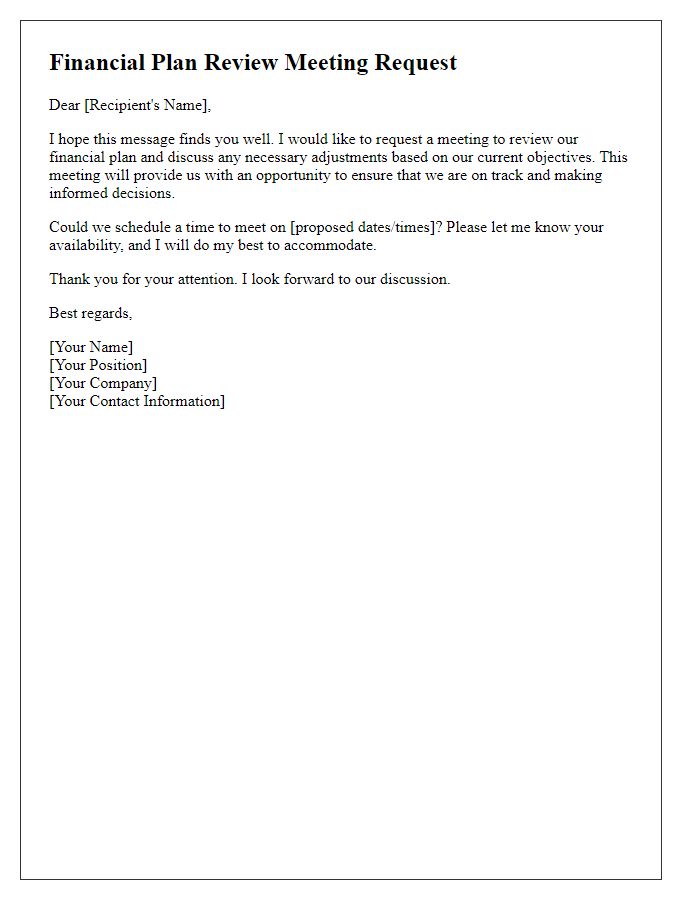
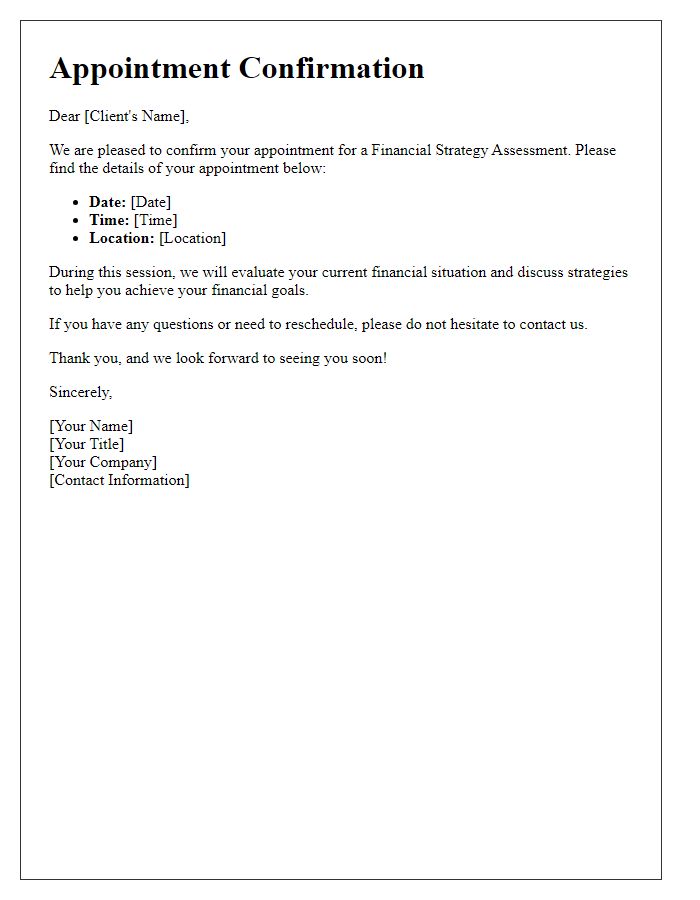
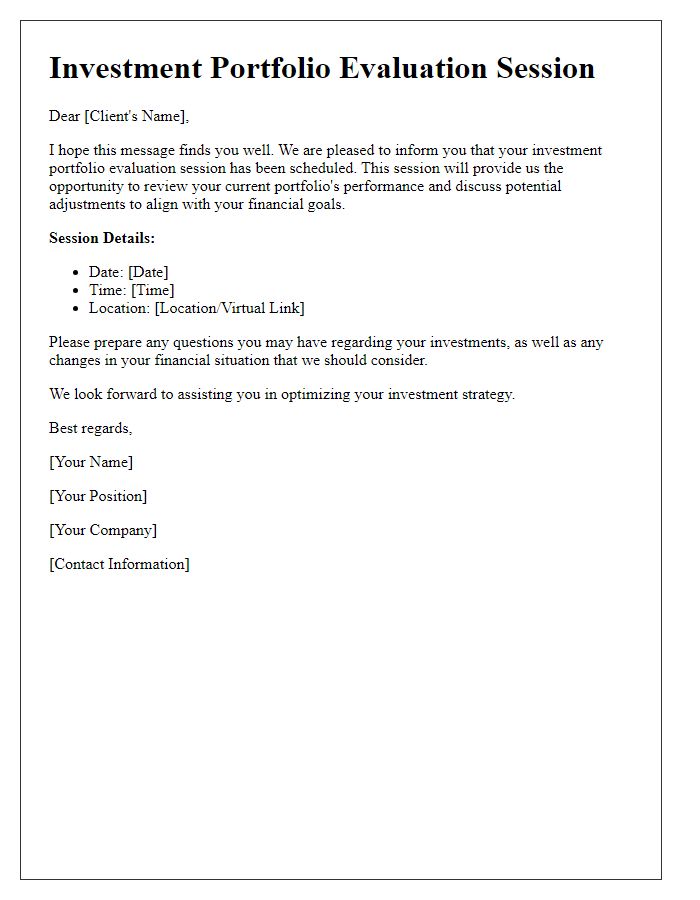
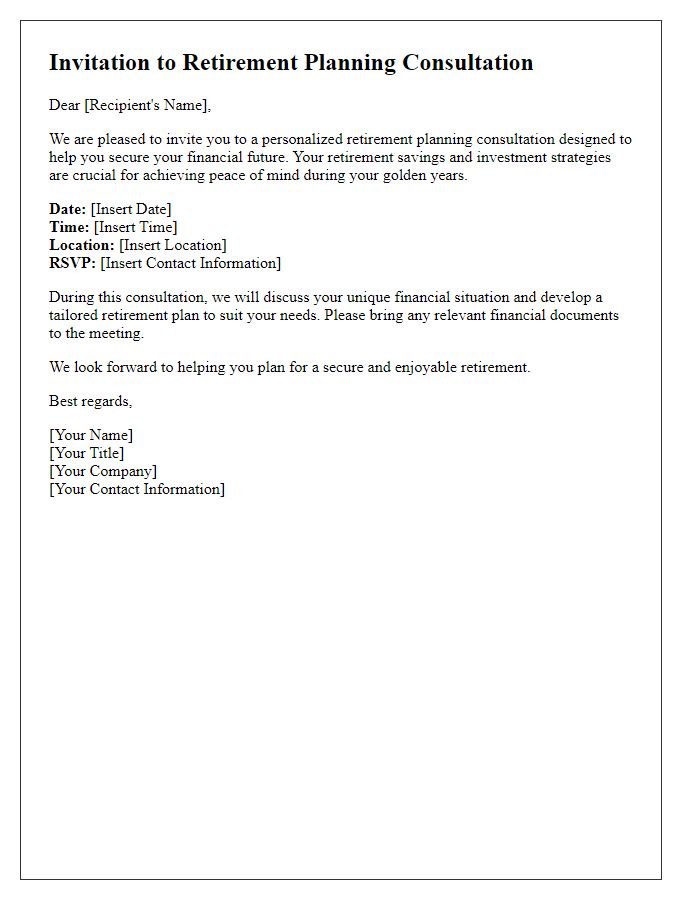
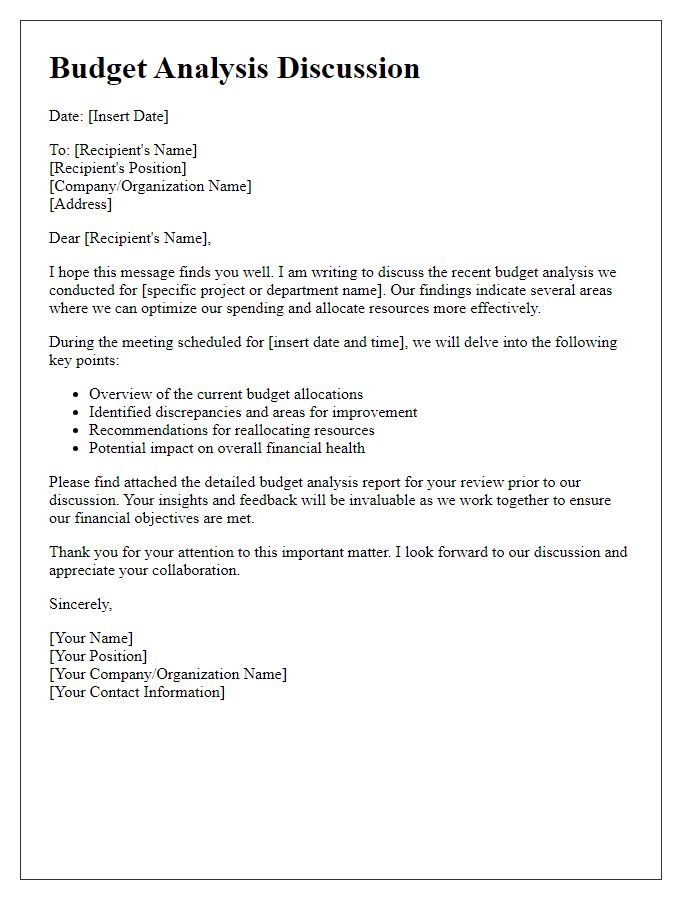
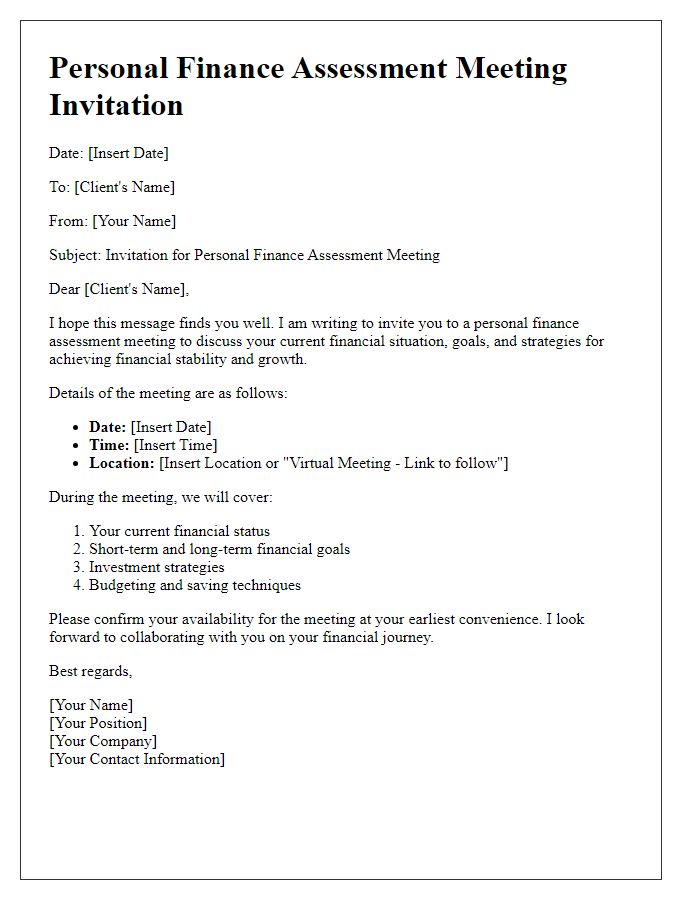
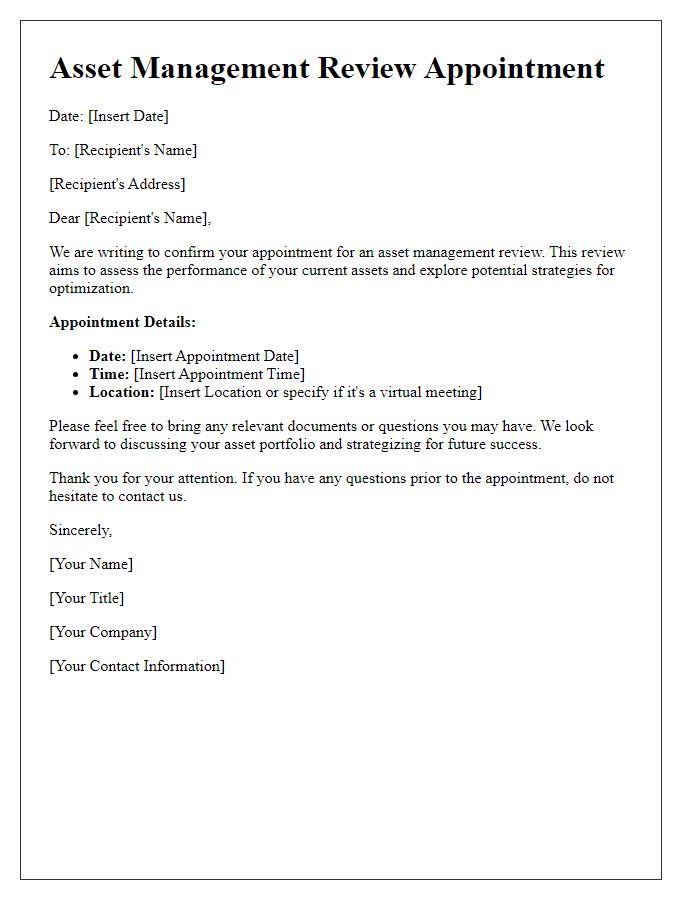

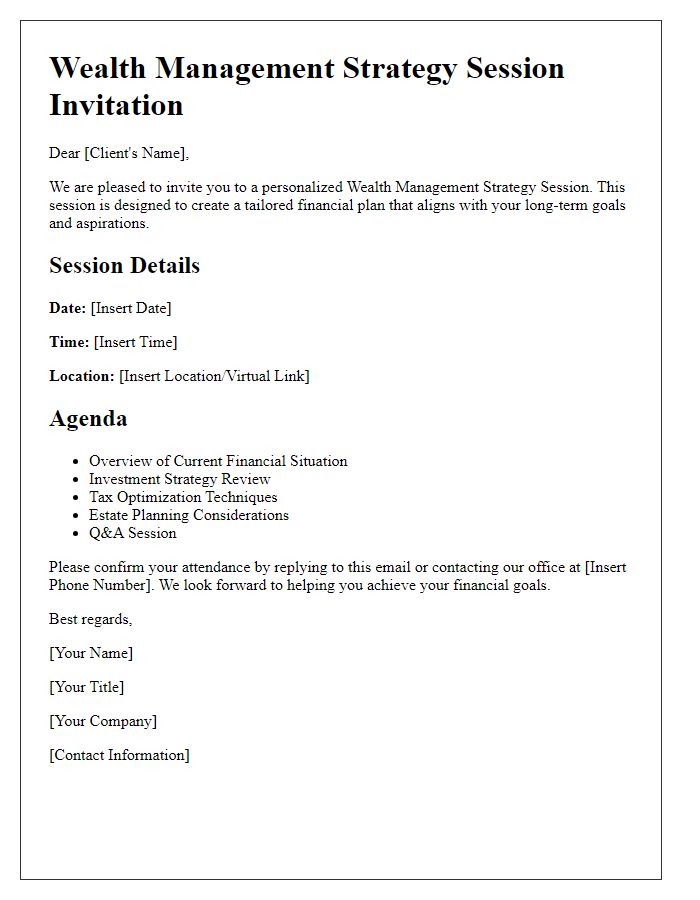
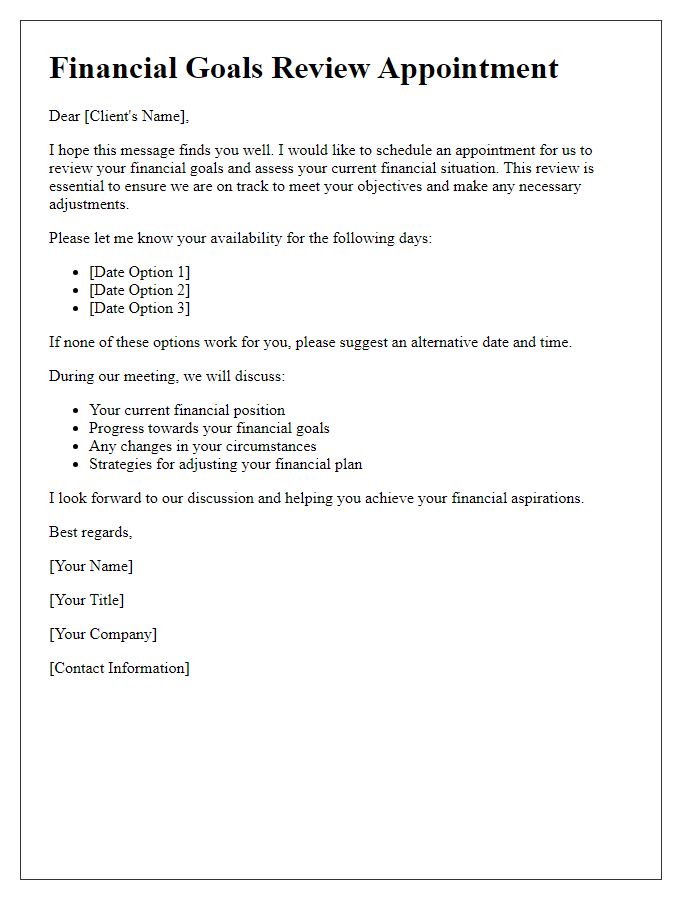


Comments